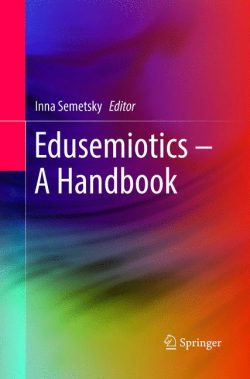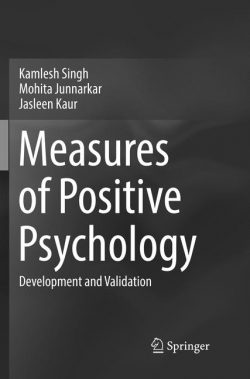This volume examines the developmental aspects of the general psychological construct of self-determination. The term refers to self- (vs. other-) caused action—to people acting volitionally—as based on their own will. Research conducted in the fields of psychology and education shows the importance of self-determination to adolescent development and positive adult outcomes. The first part of this volume presents an overview of theories and historical antecedents of the construct. It looks at the role of self-determination in major theories of human agentic behavior and of adolescent development and individuation. The second part of the volume examines the developmental origins and the trajectory of self-determination in childhood, adolescence, and adulthood, and looks as aging aspects. The next part presents studies on the evolutionary aspects, individual differences and healthy psychological development. The last part of the book covers the development of causal and agentic capability. Introduction.- Part I. Overview of Self-Determination and Theories of Self-Determination.-Chapter 1. Introduction to the Self-Determination Construct; Michael L. Wehmeyer, Karrie A. Shogren, Todd D. Little, Shane J. Lopez.- Chapter 2. Human Agentic Theories and the Development of Self-Determination; Karrie A. Shogren, Todd D. Little and Michael L. Wehmeyer.- Chapter 3. A Context for Self-Determination and Agency: Adolescent Developmental Theories; David M. Hansen and Nadia Jessop.- Chapter 4. Self-Determination Theory; Nicole Adams, Todd D. Little and Richard M. Ryan.- Chapter 5. Causal Agency Theory; Karrie A. Shogren, Michael L. Wehmeyer and Susan B. Palmer.- Part II. Developmental Origins and Life-Course Trajectory of Self-Determination.- Chapter 6. The Development of Self-Determination during Childhood; Susan B. Palmer, Michael L. Wehmeyer and Karrie A. Shogren.- Chapter 7. The Development of Self-Determination during Adolescence; Michael L. Wehmeyer and Karrie A. Shogren.- Chapter 8. Enhancing Students’ Motivation with Autonomy-Supportive Classrooms; Rong Chang, Eriko Fukuda, James Durham and Todd D. Little.- Chapter 9. Applications of the Self-Determination Construct to Disability; Michael L. Wehmeyer and Karrie A. Shogren.- Chapter 10. The Role of Passion in Adult Self-Growth and Development; Robert J. Vallerand and Maylys Rapaport.- Chapter 11. Understanding, Supporting and Safeguarding Self-Determination as We Age; Philip McCallion and Lisa A. Ferretti.- Chapter 12. Culture and Self-Determination; Karrie A. Shogren and Michael L. Wehmeyer.- Part III. SDT and Healthy Psychological Development.- Chapter 13. How Parents Contribute to Children’s Psychological Health: The Critical Role of Psychological Need Support; Bart Soenens, Edward L. Deci and Maarten Vansteenkiste.- Chapter 14. Self Determination Theory, Identity Development, and Adolescence; Luther K. Griffin, Nicole Adams and Todd D. Little.- Part IV. The Development of Volition Action.- Chapter 15. Preference and Choice-Expression; Karrie A. Shogren and Michael L. Wehmeyer.- Chapter 16. Self-Initiation and Planning; Karrie A. Shogren, Michael L. Wehmeyer and Sheida Khamsi.- Part V. The Development of Agentic Action.- Chapter 17. A Self-Determination Perspective on Self-Regulation across the Life Span; G. John Geldhof, Meghann L. Fenn and Jennifer K. Finders.- Chapter 18. Goal Setting and Attainment; Karrie A. Shogren and Michael L. Wehmeyer.- Chapter 19. Problem Solving; Karrie A. Shogren and Michael L. Wehmeyer.- Chapter 20. Decision Making; Michael L. Wehmeyer and Karrie A. Shogren.- Chapter 21. The Development of Hope; Susana C. Marques and Shane J. Lopez.- Part VI. Action-Control Beliefs.- Chapter 22. Action-Control Beliefs and Agentic Actions; Rong Chang, Nicole Adams and Todd D. Little.- Conclusion. Michael L. Wehmeyer, Ph.D. is the Ross and Marianna Beach Distinguished Professor in Special Education and Associate Chairperson, Department of Special Education; and Director and Senior Scientist, Beach Center on Disability and co-Director, Kansas University Center on Developmental Disabilities within the Schiefelbusch Institute for Life Span Studies, all at the University of Kansas. His research focuses on self-determination, strengths-based approaches to disability, and the application of positive psychology to the disability context. Dr. Wehmeyer has published more than 370 peer-reviewed journal articles and book chapters, is an author or editor for 36 books on topics related to self-determination, positive psychology and disability, and the education of learners with intellectual and developmental disabilities, and is a co-author of Intellectual Disability: Definition, Classification, and Systems of Support, the 11th Edition of the American Association on Intellectual and Developmental Disabilities’ definition of intellectual disability as well as the Supports Intensity Scale-Children’s and Adult Version.
Karrie A. Shogren, Ph.D. is a Professor in the Department of Special Education, co-Director of the Kansas University Center on Developmental Disabilities, and Associate Director of the Beach Center on Disability all at the University of Kansas. Dr. Shogren’s research focuses on self-determination and systems of support for people with disabilities as well as applications of positive psychology and strengths-based approaches to people with intellectual and developmental disabilities. Dr. Shogren has published over 100 articles in peer-reviewed journals, is the author or co-author of 10 books, and is one of the co-authors of Intellectual Disability: Definition, Classification, and Systems of Support, the 11th Edition of the American Association on Intellectual and Developmental Disabilities’ seminal definition of intellectual disability (formerly mental retardation) as well as the Supports Intensity Scale-Children’s and Adult Version.





